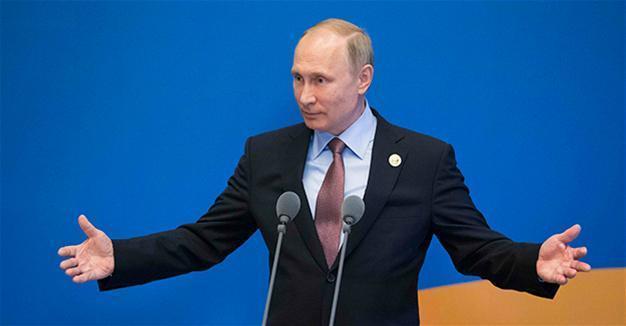Russia says it will keep YPG ties despite Turkish objection
BEIJING

REUTERS photo
Russia considers it right to maintain working contacts with Kurdish groups in Syria despite Turkey’s objections, as they are “fighting against terrorists,” Russian President Vladimir Putin said on May 15.“As the Kurdish factor is a real factor in the situation in Syria and Kurdish armed formations are taking part in combat operations against ISIL and are among the most combat efficient units, we consider it right to maintain working contacts with them, even at least for avoiding possible collisions and situations that could create threats to our servicemen,” the Russian leader said in Beijing.
When asked whether Russia supplies the Syrian Kurdish People’s Protection Units (YPG) with arms, Putin said that Moscow, “unlike the U.S. doesn’t do that.”
Ankara considers the Democratic Union Party (PYD) and its armed wing, the YPG, as terrorist groups linked to the outlawed Kurdistan Workers’ Party (PKK) and has long pressed the U.S., and recentlşy Russia, to stop its alliance with the group in the fight against the Islic State of Iraq and the Levant (ISIL).
U.S. President Donald Trump on May 9 authorized arming the YPG in Syria “as necessary to ensure a clear victory” in a planned assault to retake the city of Raqqa from ISIL, the Pentagon said May 9, creating ire in Ankara.
“Unlike other countries, we do not announce the supply of weapons to Kurdish units, and they do not much need our deliveries,” Putin said.
“They have… other sources of receiving these weapons. We do not believe that we need to somehow intensify this work,” he added.
Putin said he had discussed this issue with Turkish President Recep Tayyip Erdoğan, who voiced his concern.
“I don’t think there is something here that can cause the concern of our Turkish partners. We are in contact and our position is open and, I hope, will be understood by our Turkish partners,” he said.
Putin said he had also discussed with Erdoğan Ankara’s concern over U.S. arms deliveries to the YPG.
“We are not doing this,” Putin stressed.
Putin said that the most important thing is to consolidate the cease-fire currently underway in Syria.
“Regarding the safe zones, I hope that this will be an effective tool. First of all… to preserve the ceasefire regime. In fact, today this is the most important thing — to consolidate, strengthen the cease-fire.”
Russia, Turkey and Iran agreed in a memorandum signed on May 4 to establish four separate de-escalation zones in Syria for at least six months.
The largest de-escalation zone includes Idlib province and the adjoining districts of Hama, Aleppo and Latakia provinces. The guarantors will finalize the maps of the de-escalation zones by June 4.
According to the accord, checkpoints will ensure the safe flow of humanitarian aid and provide secure passage for civilians. Observation points will also monitor the cease-fire in the region.
















